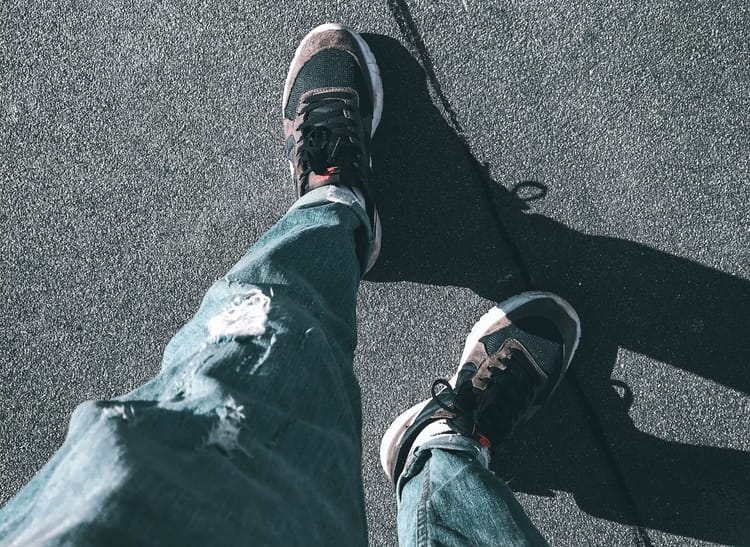Meet Beverly Gooden, The Woman Behind #WhyIStayed

It all started with a simple hashtag. Thirty-one-year-old Bev Gooden, a human resources manager on the East Coast, was tired of people criticizing Janay Rice for defending Ray Rice after video surfaced of him assaulting her in an elevator. Bev was a domestic violence survivor herself. She knew how hard it was to just up and leave. So she took to Twitter and explained why she stayed in an abusive relationship:
“I stayed because my pastor told me that God hates divorce. It didn’t cross my mind that God might hate abuse, too. #WhyIStayed,” she Tweeted.
An hour later, thousands of people had used her hashtag to share why they stayed, too. The result? A social media firestorm that finally encapsulated how very hard it is to leave an abusive relationship.
NO MORE talked to her about how she harnessed the power of social media to shift the blame from survivors to where it belongs.
Why did you decide to start this hashtag?
On my Twitter feed, everyone was asking the same question: Why did Janay Rice stay with Ray Rice? People were saying, oh, she must want his money, or some variation. Nobody asked why he hit her! The blame was on her as opposed to him. Not a lot of people knew it, but about four years ago, I left my ex-husband who was abusive. In that moment, I was angry. I felt the need to defend not only her but all survivors. And so without even thinking about starting a movement, I hashtagged #WhyIStayed.
People were speaking about their experiences. The conversation completely changed.
Then what happened?
I went back to work. An hour later, I got back on Twitter and it was trending. I was like, wow! I read the Tweets. Oh my God: People were sharing their stories. People were speaking about their experiences. The conversation completely changed. On day two, I saw an infographic that people were sending 2,000 Tweets per hour with the hashtag.
How did your life change after you Tweeted?
Now I have a passion for DV advocacy. I’d been that person who experienced it, but that was it. I didn’t talk about it. I didn’t make it my issue. Now I’m working on the Bolt Bag project. Basically you put toiletries, clothing, and any medicines you need in a bag, so that if you actually have to run out the door, you can just grab it. Making a bag can be hard. When you are trying to get out, packing seems daunting. I want there to be fewer obstacles, so I’m making these bags.
Why does society victim-blame?
For some reason, society expects the victim to explain themselves. With rape, too: What were you doing? Why did you wear that? Why did you drink that much? I think we exist in a space where we want there to be a reason why a person would commit a violent crime against someone. We don’t want to accept that sometimes there is no reason and that it could happen to any of us.
From a personal perspective, can you explain why it’s hard to leave?
This aspect is really not talked about. For me, most of the time, I didn’t want the relationship to end. I wanted the violence to end, but not the relationship. If the violence ended, in my mind that would fix the issue. If he was angry, how could I make him not angry? If he was sad, how could I lift his spirits?
The majority of abusers are sweet, awesome people prior to the abuse. I had this Prince Charming. He loved me and romanced my family. But in an instant he turned into a monster. Then he went back to being sweet. He could go from zero to 60 fast. If I was to walk out the door, who’s to say he wouldn’t try to kill me?
Plus, a lot of people are isolated from friends or family. I was halfway across the country from my whole family at the time. I didn’t have money to get on a train. He was my home. And I had a right to exist in my home without my violence.
Why did you ultimately leave?
I left because I decided he was going to kill me. It hurt when he hit me, but I didn’t think he’d ever kill me. Then one day there was an incident where he didn’t like a dish in the sink. I didn’t see it; it wasn’t a big deal. He woke me up, pushed me out of bed, and I ran to the bathroom. He started throwing things like books and phones. He rushed to the bathroom and punched me. It took that realization that he could kill me to say NO MORE.
I wanted to live more than I wanted to be married to him.
How did you get away?
It still took me two months to save up. I still didn’t have support because I didn’t tell anyone, and he was this upstanding citizen. Nobody suspected anything. I wrote an email testimony to my two best friends in September 2010. I wrote all the times that I could remember when he hit me. I made my statement in case something happened to me. Then I left in December, filed for divorce in April, and he didn’t come to court. It became official in July 2011.
How did your family react?
My mom said, “You don’t owe him your silence.” And so I will keep speaking out.
If you need immediate help, call the National Domestic Violence hotline at 1-800-799-SAFE. Visit NO MORE for additional survivor resources.
Together We Can End Domestic and Sexual Violence






